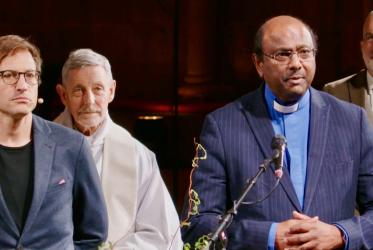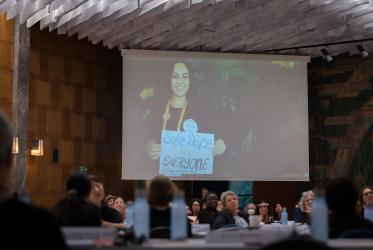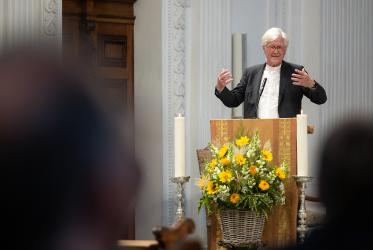When is the right time to ban a very bad thing? Nations have faced the question in banning slavery, torture, chemical weapons and more. Over one hundred governments and civil society organizations including the World Council of Churches (WCC) are debating the question again at a United Nations working group on nuclear weapons. The forum meets three times in 2016.
A solid majority, intent on progress after decades of deadlock and including virtually all non-governmental organizations present, is calling for action as soon as possible. Many, including the WCC, stress the need for an explicit legal ban. WCC general secretary Rev. Dr Olav Fykse Tveit noted in a statement to the group that recent evidence on the catastrophic impact of nuclear weapons “has rekindled the majority will to do what a majority can do—make new laws to close the legal gap around nuclear weapons.”
Nevertheless, a solid minority of governments is insisting that existing treaties and remedies are enough, even though those steps have been pending for years and do not include a ban of nuclear weapons. The debate is spirited and solution-oriented but, tellingly, the nine countries that actually have nuclear weapons have chosen not to attend.
The WCC general secretary said success on this long-deadlocked problem will require negotiations in good faith, a basic legal obligation of all states which is stipulated in nuclear treaties and court cases.
“Recent history would indicate that good-faith negotiations on nuclear disarmament have become rather scarce. Some forums are stalled indefinitely; others have never started,” Tveit said. This working group is “an opportunity to break such patterns. It is open to all, block-able by none and tasked with advancing a great common good.”
Member churches and ecumenical partners in the Ecumenical Peace Advocacy Network contacted 15 governments in advance of the working group. Ecumenical delegates including two members of the WCC Commission of the Churches on International Affairs, Anthony Adebayo from Nigeria and Stanley Noffsinger from the United States, followed up at the meeting. “Churches in every region of the world look for substantive progress,” Tveit said.
In an interfaith statement, the WCC and Pax Christi International joined Buddhists, Muslims, Hindus in calling on all governments to fulfill their obligation to negotiate the path to nuclear disarmament, in good faith. Nuclear weapons are the only weapon of mass destruction that has not been banned.
Groups of states and the International Campaign to Abolish Nuclear Weapons, which includes WCC, are proposing negotiations to ban nuclear weapons as early as next year. The working group is charged with identifying “concrete effective legal measures” needed for a world free of nuclear weapons. It is mandated to bring its findings to this year’s UN General Assembly.




